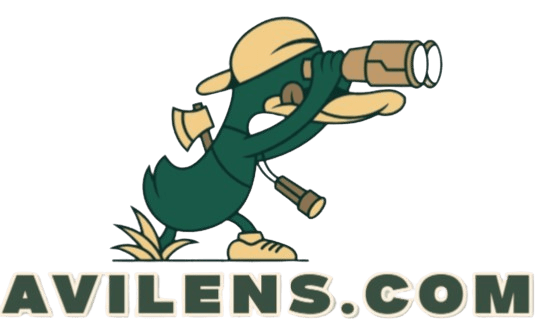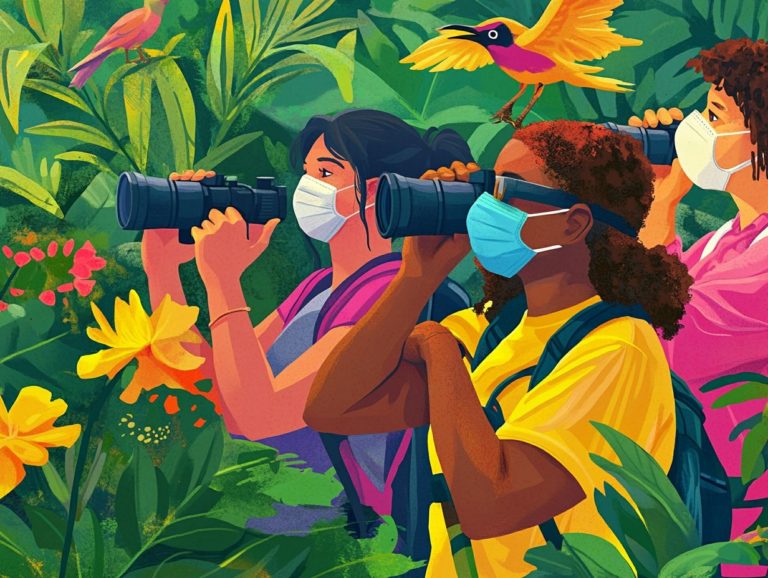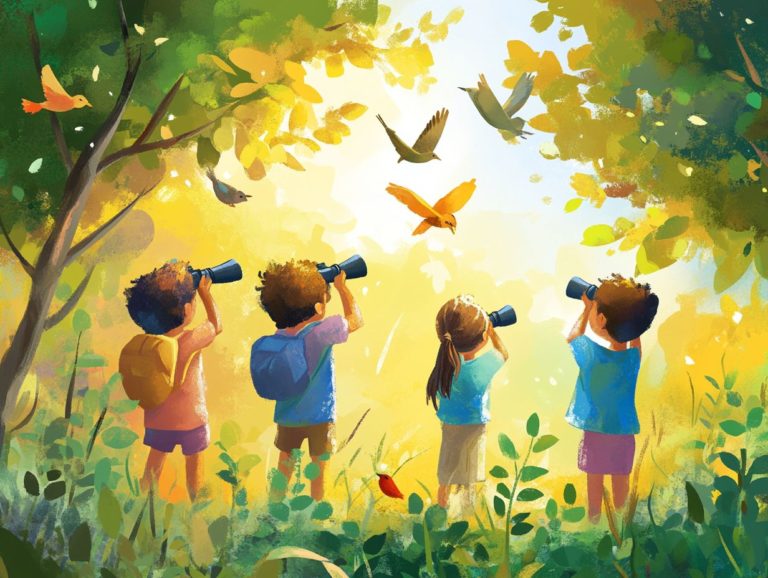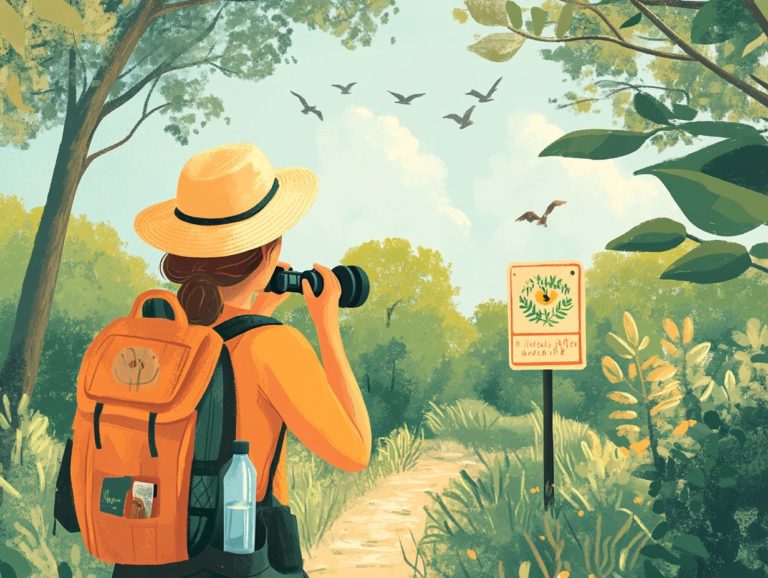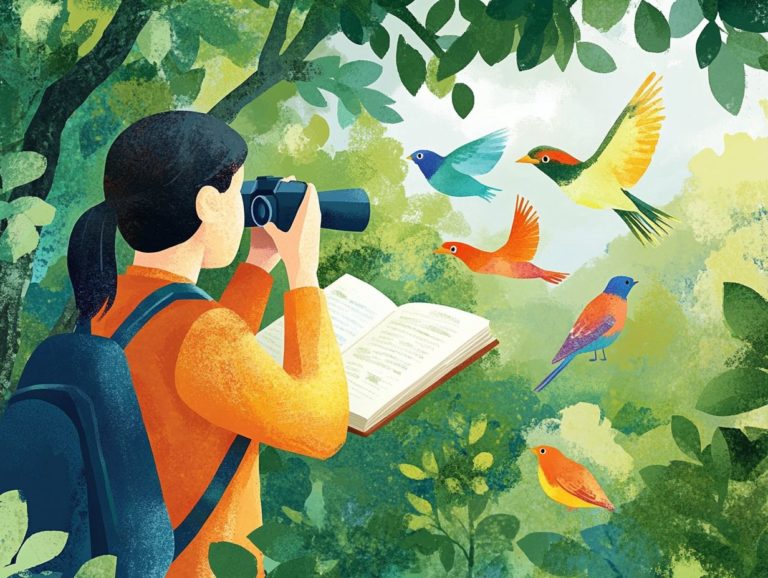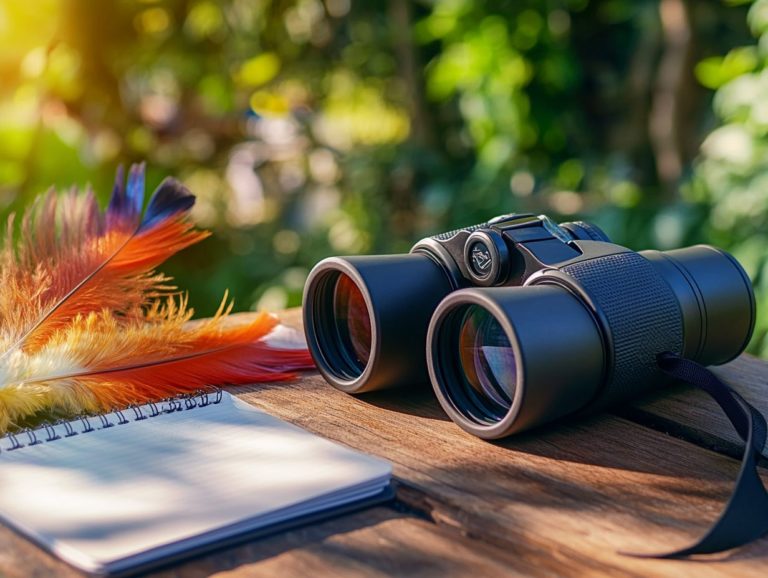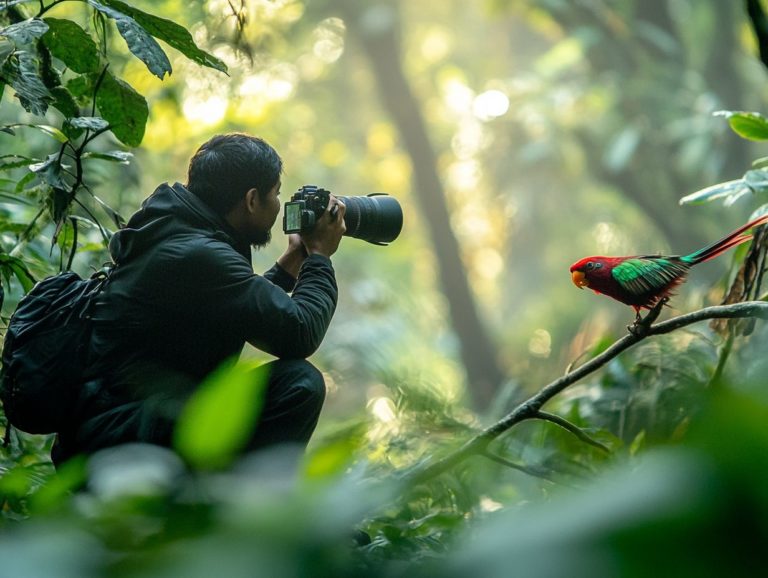What is the Role of a Bird Guide?
Bird guides enhance your birdwatching experience. They combine a passion for avian life with the expertise needed to educate others, including knowledge of tools like bird feeders filled with black oil sunflower seed.
This guide is packed with exciting insights to help you soar as a bird guide! You ll discover the key skills you need to become an amazing bird guide, including familiarity with resources like bird books and the Merlin app.
You’ll also explore the responsibilities that come with leading tours, the advantages of hiring a guide, and the steps to embark on this fulfilling journey. Whether you re contemplating a career in bird guiding or simply curious about the profession, this piece offers valuable insights tailored just for you.
Contents
Key Takeaways:
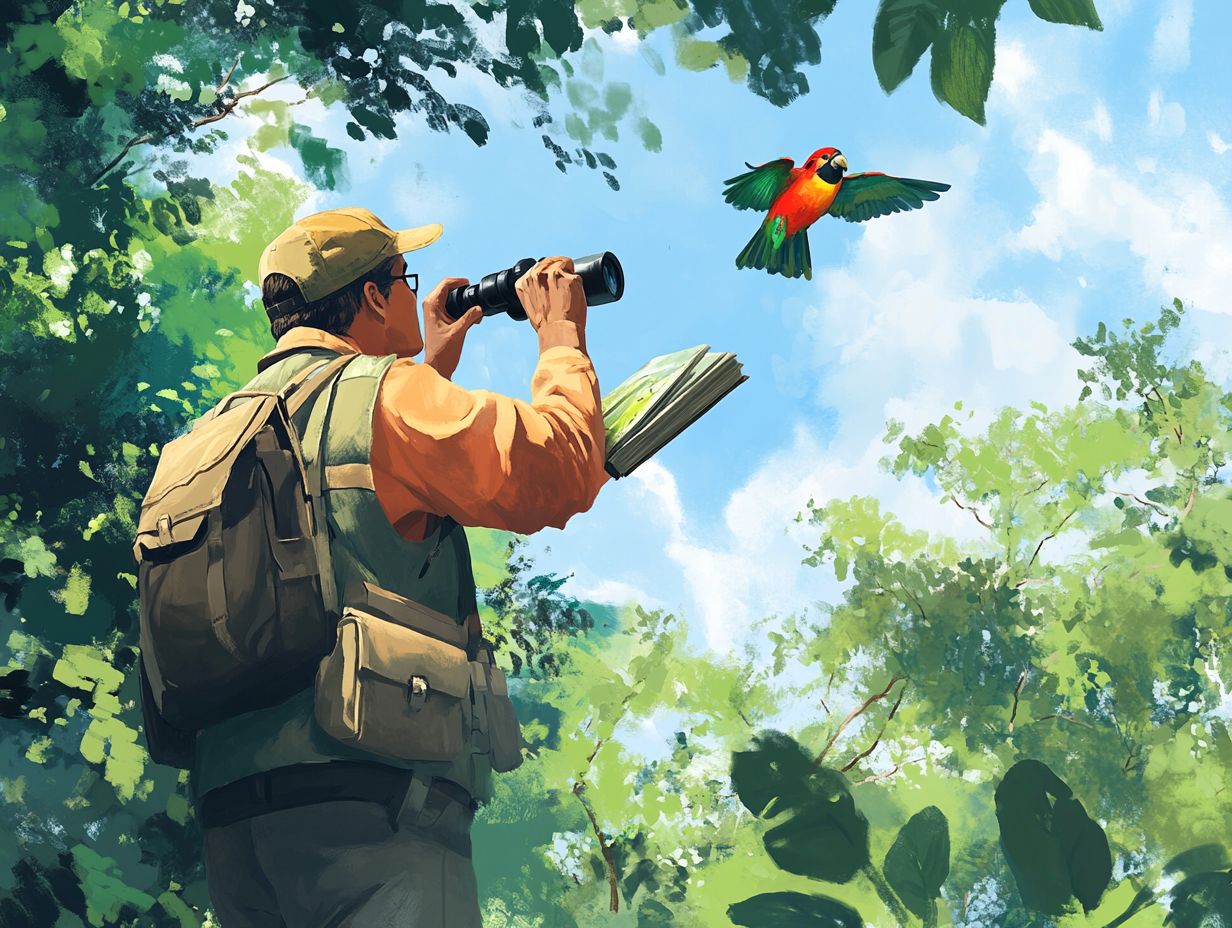
- A bird guide is a knowledgeable and skilled individual who leads birding tours and educates participants on birds and their habitats.
- To become a bird guide, one must have extensive knowledge of birds, strong communication skills, and a passion for conservation.
- Hiring a bird guide enhances the birding experience, supports local conservation efforts, and provides opportunities to build experience and network.
Definition and Purpose
Birding, or bird watching, is more than just a hobby; it s a passionate pursuit that draws you into the vibrant world of avian life. This activity allows you to explore diverse habitats, observe unique bird behaviors, and truly appreciate their beauty in a natural setting.
Birding isn t just about enjoyment; it actively promotes conservation efforts, enhances your knowledge of different species, and can even pave the way for bird-related careers in fields like the study of birds and the study of animals in their natural habitats.
The cultural significance of birding runs deep, fostering community and sparking conversations about nature and wildlife preservation. You might engage in various methods of birding whether it s a leisurely stroll through a local park or participating in organized birding festivals all of which highlight the joys this hobby brings.
Equipping yourself with essential tools, like field guides and user-friendly apps such as Merlin, can elevate your viewing experience, enabling you to identify species and track your sightings with ease. Through these practices, birdwatchers like you not only deepen your understanding of ecosystems but also take an active role in advocating for environmental awareness, emphasizing the urgent need to protect the habitats vital for avian populations.
Skills and Qualifications of a Bird Guide
A proficient bird guide embodies a distinctive combination of skills and qualifications that not only elevates your birding experience but also fosters a deeper appreciation for avian biodiversity, often enriched by insights from experts.
Essential skills include an extensive understanding of bird species and their habitats, often supported by formal education in fields like the study of birds or the study of animals in their natural habitats. Many guides collaborate with esteemed organizations, such as the Audubon Society, to remain informed about conservation initiatives and emerging birding trends.
Knowledge of Birds and their Habitats
An in-depth knowledge of bird species and their habitats is essential for you as a bird guide; it’s the foundation of successful bird-watching tours. This understanding includes grasping migratory patterns, nesting behaviors, and dietary preferences, all of which can significantly enhance the experience for your participants.
Tapping into resources from reputable organizations like National Geographic can keep you updated on the latest discoveries and conservation success stories.
By recognizing the unique ecological needs of various bird species, you can effectively communicate the importance of preserving these vital environments. For instance, discussing different habitats like wetlands, forests, and grasslands helps participants appreciate how these ecosystems contribute to bird survival.
You can even incorporate hands-on activities, such as habitat mapping or recording bird calls, which not only engage your audience but also deepen their understanding of life’s interconnectedness. By emphasizing the role of conservation efforts, including habitat restoration and protection laws, you can inspire individuals to become active advocates for avian diversity and sustainability.
Communication and Interpersonal Skills
Effective communication and interpersonal skills are essential for you as a bird guide. They elevate the entire experience of birdwatching tours, making it engaging and memorable.
Connecting with groups, often organized by esteemed institutions like the Audubon Society, can greatly enhance the enjoyment and learning of everyone involved.
By using techniques like storytelling and interactive engagement, you can turn a simple outing into an unforgettable adventure. Storytelling captivates your audience and provides valuable context that enriches their experience, helping them connect emotionally with the subject matter.
Adapting your communication style to suit the audience whether they are seasoned birders or eager novices fosters inclusivity. This thoughtful approach ensures that everyone feels valued and engaged, creating lasting connections and increasing the likelihood of future tours.
Responsibilities of a Bird Guide
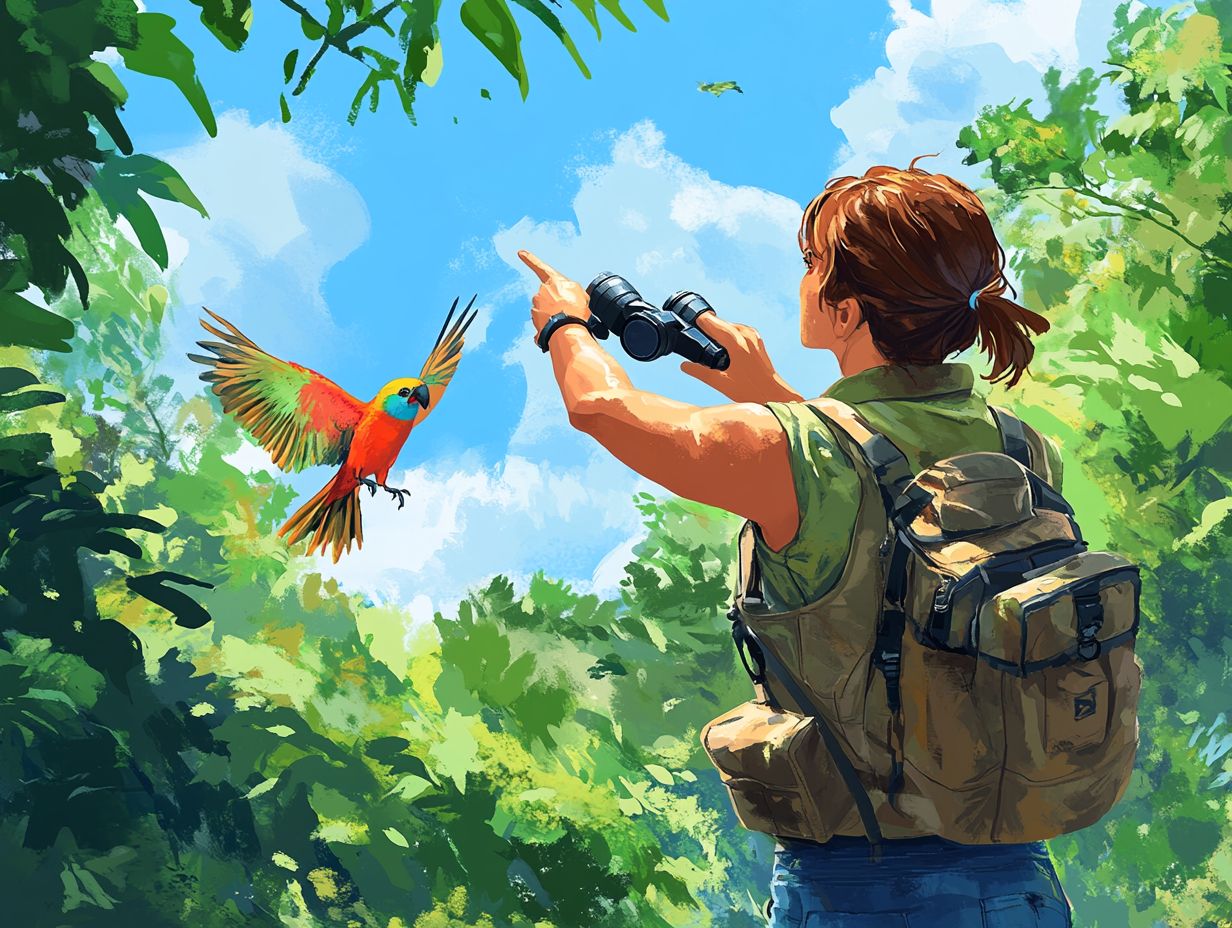
As a bird guide, you take on a diverse role that ensures participants enjoy enriching birding experiences. Your responsibilities include leading tours across various habitats and sharing information about the fascinating array of bird species.
Your role also includes nurturing an understanding of the importance of protecting nature. You draw upon your expertise as a wildlife biologist to ignite a passion for avian protection among participants.
Leading Birding Tours and Trips
Leading birding tours requires not just expertise but a profound passion for birdwatching that can inspire both you and your participants.
As a bird guide, you are responsible for planning and executing engaging tours. This includes selecting the best locations and ensuring every logistical detail is in place for a rewarding experience.
By emphasizing the importance of conservation efforts during these tours, you can help cultivate a deeper appreciation among participants for the natural world.
Essential logistics include route planning. Research bird hotspots and understand seasonal patterns to maximize sightings. Timing is crucial; early mornings often present the best opportunities for observing vibrant avian life.
Maintaining high-quality equipment, from binoculars to field guides, can significantly elevate the experience. Create unique itineraries that mix fun activities with learning. This keeps participants excited and engaged.
It’s not merely about spotting birds it’s about fostering connections to nature and promoting conservation messages that resonate with travelers long after the tour concludes.
Educating and Informing Participants
Your central duty as a bird guide is to educate and inform participants, enriching their understanding of the avian world and its conservation needs. You ll share valuable insights into various bird species, their roles in ecosystems, and the critical need to preserve their habitats.
Collaborating with organizations like the Audubon Society can enhance your educational offerings, providing participants access to valuable resources.
To achieve this, implement interactive sessions that encourage participants to engage with their surroundings. They ll learn about behaviors of beloved species like the American Robin and the majestic Bald Eagle.
Offering hands-on activities, such as building birdhouses or participating in bird counts, fosters a deeper connection to nature. Engaging discussions about recent conservation efforts, including habitat restoration projects that protect migratory pathways of songbirds, provide essential context.
Through guided walks, participants will practice birdwatching techniques, enhancing their observation skills while discussing the significance of each sighted species. This approach ensures that the experience is both educational and thoroughly enjoyable.
Benefits of Hiring a Bird Guide
Hiring a bird guide unlocks a wealth of benefits that can elevate your bird-watching experience to new heights, whether you’re venturing out solo or with a group. With their expert knowledge of local bird species and habitats, guides offer insights that transform an ordinary outing into a memorable adventure.
They grant you access to prime birding locations, ensuring you spot those elusive species you ve always wanted to see. Plus, by supporting local conservation efforts, you play a vital role in sustaining natural habitats and preserving the rich diversity of avian life.
Enhanced Birding Experience
An enhanced birding experience is one of the great reasons to hire a bird guide. Their expert knowledge can elevate a simple outing into a rich educational adventure. By looking into bird behaviors, habitats, and identification techniques, guides help you forge a deeper connection with the natural world surrounding you. This understanding not only enriches your bird-watching experience but also nurtures a sense of stewardship for the environment.
Unique locations significantly enhance your birding adventures. These scenic spots, combined with guided outings, allow you to uncover hidden gems often missed by casual observers.
Engaging in expert-led discussions further enhances your experience, facilitating meaningful conversations about conservation efforts and local ecosystems. Hands-on learning opportunities like tracking migration patterns or participating in citizen science projects foster a lasting appreciation for wildlife.
Over time, this enriched awareness can lead to a deeper commitment to conservation and a profound admiration for nature’s intricate tapestry.
Supporting Local Conservation Efforts
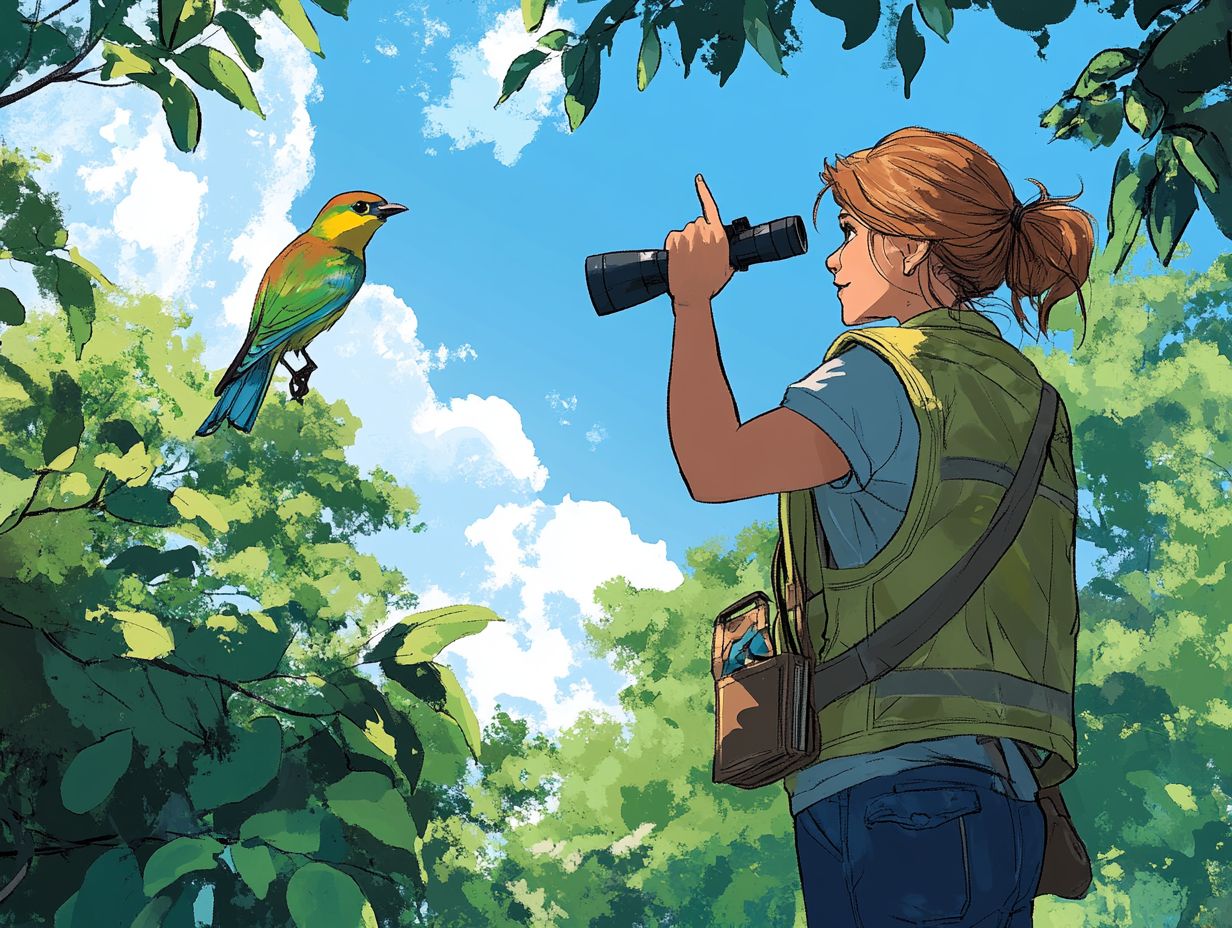
Supporting local conservation efforts becomes a remarkable advantage when you hire a bird guide, as many of these guides are intricately linked to conservation organizations like the Audubon Society. By participating in guided tours, you directly contribute to initiatives focused on habitat restoration, species protection, and environmental education.
The insights offered by these guides, often trained as wildlife biologists, can profoundly raise your awareness about the challenges birds face and the actions you can take to make a difference.
As you engage with these knowledgeable professionals, you gain a richer understanding of the delicate ecosystems in your region. This connection inspires you to take action for nature and motivates you to take action within your own community.
When guides share their experiences and expertise, they foster a conservation ethic among birders, encouraging you to become an active advocate for avian preservation. The fees collected from these tours frequently support local projects and initiatives aimed at protecting critical habitats and educating the public about the importance of biodiversity, paving the way for a more sustainable future for wildlife.
How to Become a Bird Guide
Becoming a bird guide requires a blend of training, hands-on experience, and potentially certification options that can pave your way to a rewarding career in bird watching. Many aspiring guides begin by volunteering or collaborating with local organizations to build their experience.
Others opt for formal training programs that offer a comprehensive approach to guiding techniques. Obtaining certification from recognized bodies can give you a competitive advantage, showcasing your expertise and dedication to the craft.
Join us in making a difference for wildlife today!
Training and Certification Options
Training and certification options are essential for becoming a qualified bird guide. They provide the foundational knowledge needed for effective guiding.
Institutions like the Audubon Society and the Cornell Lab of Ornithology offer a range of programs, from beginner workshops to advanced courses. Earning certification from reputable organizations enhances your credibility in the competitive bird guide market.
These programs include both theory and practical experiences to enrich your learning. Online courses allow you to learn at your own pace, while in-person workshops provide invaluable hands-on experience.
Engaging in field experiences, like guided birding trips or conservation projects, deepens your understanding of birds and their habitats.
Obtaining certification can significantly expand your career prospects. These qualifications open doors to networking opportunities in conservation organizations, tourism companies, and educational institutions.
Building Experience and Networking
Gaining experience and networking are thrilling steps toward your dream career as a bird guide. Hands-on experience often leads to invaluable connections in the field.
Volunteering with local conservation organizations lets you gain practical skills while interacting with seasoned professionals who can offer insights and guidance.
Networking at birding events and conferences fosters relationships that may blossom into future guiding opportunities. Engaging with birdwatching groups helps you connect with fellow enthusiasts and enhance your observational skills.
Participating in organized bird counts or workshops further enriches your expertise and shows your commitment to the field. As you establish a reputation, mentorship opportunities may arise, paving the way for collaboration on research projects or excursions.
Ultimately, cultivating these relationships within the birding community is crucial for your career advancement and achieving shared conservation goals.
Frequently Asked Questions
What is the Role of a Bird Guide?
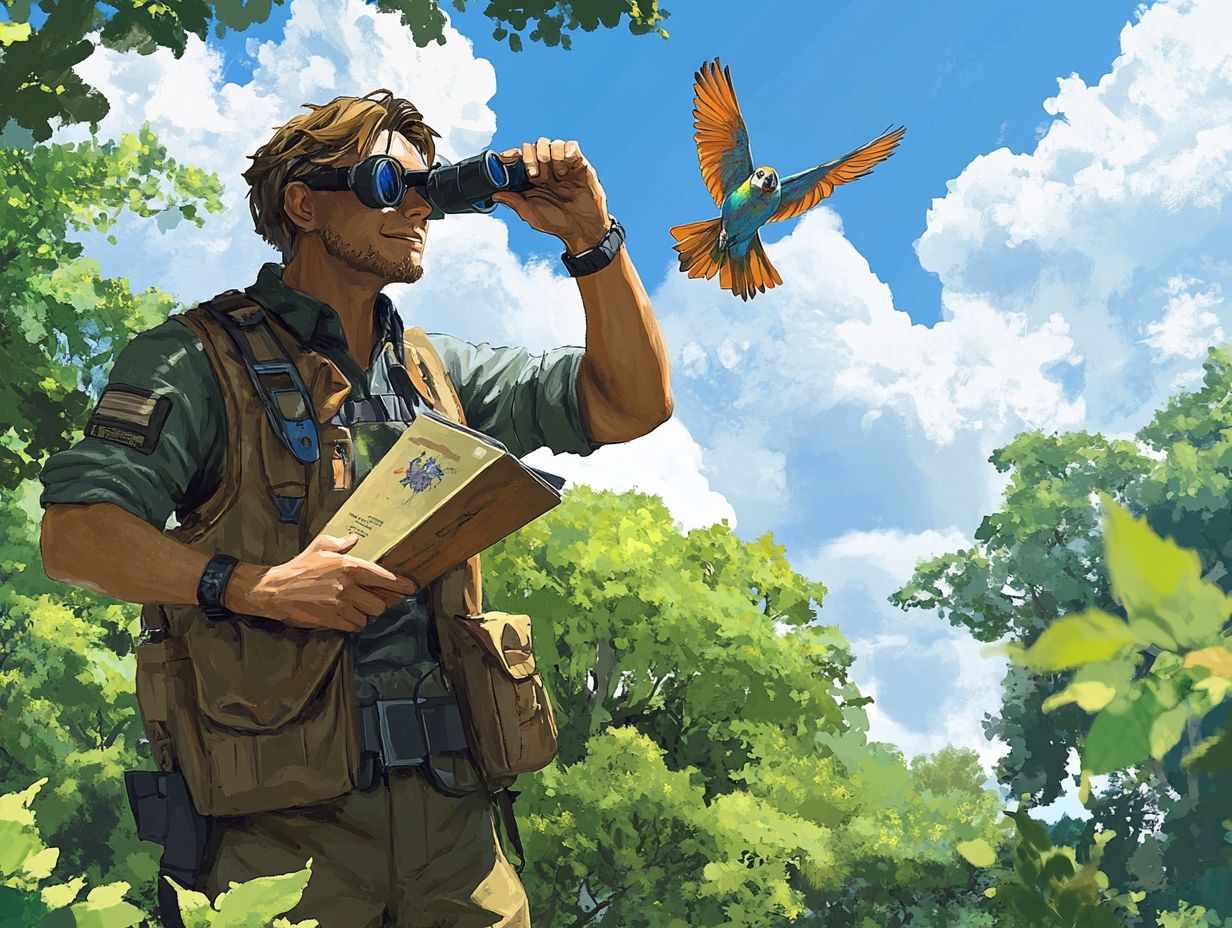
The role of a bird guide is to lead and educate individuals or groups on bird watching excursions. They are knowledgeable about various bird species and their habitats and use their expertise to assist others in spotting and identifying birds in the wild.
What qualifications are necessary to become a bird guide?
While no specific degree or certification is required, most bird guides have a deep passion for birds and their habitats. They typically possess extensive knowledge and experience in bird identification and behavior, along with excellent communication and leadership skills.
What skills does a good bird guide possess?
A good bird guide is knowledgeable about birds, has strong observational skills, patience, and the ability to communicate effectively. They also have a keen eye for spotting and identifying birds in their natural habitats.
Are bird guides only responsible for identifying birds?
No, the role of a bird guide goes beyond just identifying birds. They provide information about local ecology, conservation efforts, and the importance of preserving birds and their habitats. They also ensure the safety and well-being of their group during excursions.
Can anyone become a bird guide?
Yes, anyone with a passion for birds and a willingness to learn and educate others can become a bird guide. However, it’s important to have a strong understanding and respect for birds and their habitats and to continuously update knowledge on bird species and conservation efforts.
What types of trips do bird guides lead?
Bird guides can lead a variety of trips, including day trips, multi-day adventures, and customized excursions tailored to clients’ specific interests. They may also guide trips to various birding hotspots around the world, depending on their expertise and experience.
